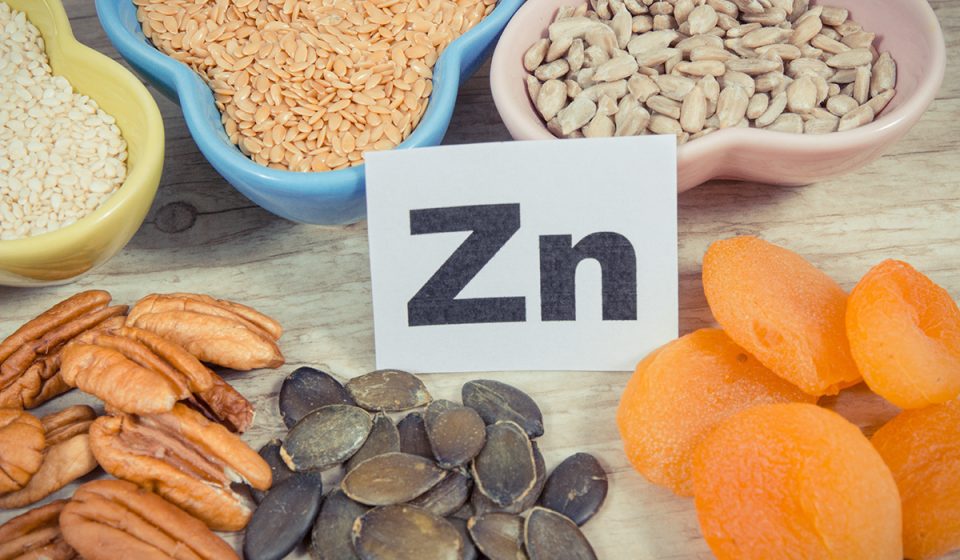
Zinc Deficiency: Signs and Symptoms, Causes, and Treatment
Zinc is a crucial trace mineral that plays an integral role in numerous biological functions, such as boosting the immune system, facilitating wound healing, and supporting normal growth and development. It is involved in over 300 enzyme processes within the body, influencing everything from cell division to protein synthesis.
Table Of Content
Because it is involved in so many processes, even a slight zinc deficiency can lead to significant health concerns. In this expanded guide, we’ll explore the signs, causes, and treatment options for zinc deficiency, as well as the role it plays in maintaining good health.
1. Signs and Symptoms of Zinc Deficiency

Zinc deficiency can manifest in various ways, and the severity of symptoms often correlates with how deficient the body is. Early signs of deficiency can be mild, but if left untreated, they may progress into more severe health issues. Some of the most common signs include:
- Frequent Infections: Zinc is essential for a healthy immune system. A deficiency may lead to frequent or persistent infections, as the body’s immune response is compromised.
- Slow Wound Healing: Zinc plays a critical role in cell growth and repair. When zinc levels are low, the body struggles to repair tissue, resulting in delayed wound healing.
- Hair Thinning or Hair Loss: Zinc is vital for maintaining healthy hair follicles. Low zinc levels may contribute to hair thinning, shedding, or alopecia (hair loss).
- Loss of Appetite: Zinc deficiency can lead to changes in taste and smell, which may result in reduced appetite. This is often one of the earliest signs of zinc insufficiency.
- Impaired Sense of Taste or Smell: One of the more unusual symptoms of zinc deficiency is a diminished sense of taste or smell, making food less flavorful and potentially leading to a decrease in food intake.
- Skin Rashes: Zinc is vital for skin health, and a lack of it can lead to skin rashes, particularly around the mouth, hands, and other areas of the body.
- Diarrhea: A zinc deficiency can interfere with the normal function of the gastrointestinal tract, leading to digestive issues like chronic diarrhea.
- Fatigue and Weakness: Zinc is important for energy production and metabolic function. Without enough zinc, individuals may experience chronic fatigue and weakness.
- Mental Lethargy or Depression: Low zinc levels are linked to cognitive decline, mental fatigue, and symptoms of depression. This can result from both direct effects on the brain and indirect effects related to poor nutrition.
- White Spots on Fingernails: One of the more visible signs of zinc deficiency can be the appearance of small, white spots on fingernails, a condition known as leukonychia.
- Growth Retardation in Children: Zinc is vital for growth and development. A deficiency can impair a child’s growth, leading to stunted development.
2. Common Causes of Zinc Deficiency

Several factors contribute to zinc deficiency, making it an issue for a wide range of individuals. Below are some of the primary causes:
- Poor Dietary Intake: People who follow vegetarian or vegan diets are more likely to experience zinc deficiency. Plant-based foods contain lower amounts of zinc, and some plant-based foods also contain substances like phytates that hinder zinc absorption.
- Malabsorption Conditions: Conditions such as Crohn’s disease, celiac disease, and other gastrointestinal disorders can interfere with the body’s ability to absorb zinc from food.
- Chronic Liver or Kidney Disease: Both the liver and kidneys are involved in regulating zinc levels. Diseases affecting these organs may lead to zinc imbalances.
- Alcoholism: Chronic alcohol consumption can reduce zinc absorption and increase its excretion from the body, leading to a deficiency.
- Pregnancy and Breastfeeding: The body’s need for zinc increases during pregnancy and breastfeeding, making pregnant and breastfeeding women more susceptible to deficiency if their diet does not meet these increased demands.
- Chronic Diarrhea: Persistent diarrhea can lead to the loss of important nutrients, including zinc. This is particularly common in children and individuals with gastrointestinal disorders.
- Genetic Disorders: Rare genetic conditions, such as acrodermatitis enteropathica, can impair zinc absorption and lead to severe deficiencies.
- High Levels of Stress or Chronic Illness: Chronic stress and long-term illness can deplete the body’s zinc stores, leading to deficiency over time.
3. How to Treat Zinc Deficiency

Treating zinc deficiency typically involves a combination of dietary changes, supplementation, and addressing any underlying health conditions. Some key approaches include:
- Dietary Changes: The best way to increase zinc intake is through food. Zinc-rich foods include animal products like meat, shellfish, dairy, and poultry, as well as plant-based sources like legumes, nuts, seeds, and whole grains.
- Zinc Supplements: In cases where dietary intake alone is insufficient, zinc supplements may be recommended. It is important to take these under the guidance of a healthcare provider, as excessive zinc intake can lead to toxicity and other health complications.
- Addressing Underlying Health Conditions: Conditions like gastrointestinal disorders or chronic illnesses that impair nutrient absorption should be treated or managed to prevent further zinc depletion.
- Limit Foods That Inhibit Zinc Absorption: Some foods, particularly those high in phytates (like certain whole grains and legumes), can reduce the absorption of zinc. Soaking, fermenting, or sprouting these foods can help improve zinc bioavailability.
- Professional Guidance: It is crucial to seek medical advice before starting any supplementation. Zinc toxicity can occur if taken in excessive amounts and may cause nausea, vomiting, and damage to the immune system.
4. Zinc-Rich Foods Table
Below is a table showing some common foods that are rich in zinc, along with their zinc content per 100 grams:
| Food | Zinc Content per 100g |
|---|---|
| Oysters | 39.3 mg |
| Beef (cooked) | 8.6 mg |
| Pumpkin seeds | 7.8 mg |
| Cashews | 5.6 mg |
| Chickpeas (cooked) | 1.5 mg |
| Yogurt (plain) | 1.0 mg |
| Chicken breast (cooked) | 1.0 mg |
| Cheddar cheese | 3.1 mg |
| Almonds | 3.3 mg |
| Lentils (cooked) | 1.3 mg |
5. Final Thoughts
Zinc is a small but mighty mineral that plays a significant role in keeping your body functioning optimally. It supports immune function, wound healing, and even mental well-being. Since zinc is involved in so many biological processes, it’s important to ensure that your diet provides enough of this vital nutrient. If you suspect you may be deficient in zinc, early intervention can help prevent more serious health problems. By increasing your intake of zinc-rich foods or taking supplements when necessary, you can keep your body healthy and functioning at its best.


